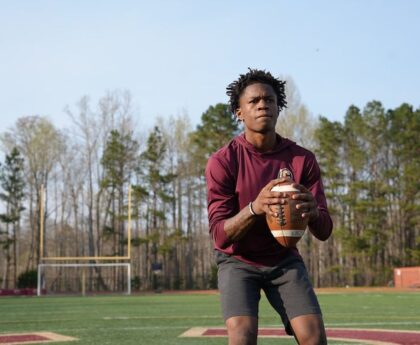Blue Jays Pitcher Anthony Bass Issued Public Apology for Anti-LGBTQIA+ Post on Social Media
The Incident
Professional athletes’ social media activities are constantly under scrutiny, and Toronto Blue Jays relief pitcher Anthony Bass learned this the hard way. Earlier this week, Bass shared an anti-LGBTQIA+ video on his Instagram story, urging people to boycott Target and Bud Light for their support of the LGBTQIA+ community. The said video included harmful stereotypes and labeled the companies’ pride campaigns as “demonic” and “evil.” Following backlash from social media users, Bass removed the post and issued a public apology.
The Apology and Its Implications
In his apology, Bass stated that he recognized the hurt caused by his actions to the Pride community, which included friends and family members. He also spoke to his teammates and the Blue Jays’ management to apologize for his actions. The Blue Jays’ organization clarified that Bass’s individual sentiments did not represent the club’s beliefs.
Although some fans donated to pro-LGBTQIA+ organizations in Bass’s name, it remains to be seen whether the pitcher’s apology has been accepted by the community. Bass’s case highlights the importance of accountability on social media, especially for public figures who have a significant following. It is crucial to realize the impact that one’s words can have on marginalized communities, and that there should be consequences for promoting hateful rhetoric.
Social Media Accountability for Professional Athletes
Professional athletes are role models for young people, and their actions both on and off the field have consequences. As they amass a large following on social media, they have a responsibility to use their platform to promote positivity and tolerance. Social media can be a powerful tool to spread awareness about issues that matter and amplify marginalized voices. Still, it can also be used to spread hate and promote harmful stereotypes. Therefore, it is vital that professional athletes are held accountable for their social media activity, just as they are for their conduct on the field.
Conclusion and Advice
In conclusion, Anthony Bass’s anti-LGBTQIA+ post on social media serves as a reminder of the harm that can be caused by harmful rhetoric and stereotypes. Athletes, being public figures, should be more aware of their influential role and be accountable for their actions on social media. A lack of accountability can harm marginalized communities, and it is thus crucial for athletes to be aware of the sensitivity of issues and speak out in favor of marginalized communities. Moving forward, it is vital to use social media to promote positivity and amplify voices of the marginalized.

<< photo by Ron Lach >>
You might want to read !
- Navigating the complex waters of celebrity relationships: Examining Jana Kramer’s engagement in the age of social media
- The Dangers of Relying on ‘Verified’ Twitter Accounts for Information-Sharing
- “The Social Media Dependence: How the Instagram Outage Reveals Our Addiction”
- Exploring the Responsibility of Public Figures in Combating Discrimination: Anthony Bass’ Apology for Sharing Anti-LGBTQIA+ Post
- The consequences of DUI: DaniLeigh arrested after Miami hit-and-run
- Leeds United’s Premier League Relegation: An Analysis of the Team’s Performance.
- “Why sportsmanship matters: Ukrainian player Marta Kostyuk advocates for respectful tennis crowds at the French Open”
- The Consequences of Greg Gutfeld’s Actions Unfold in Real Time.
- Exploring the Dangers of Human Metapneumovirus: What You Need to Know.
- “Unpacking the Cultural Significance of Megan Thee Stallion and Romelu Lukaku’s Intersectional Collaboration”
- The Aftermath of Nova Scotia Wildfires: A Devastating Fallout for Canadians




